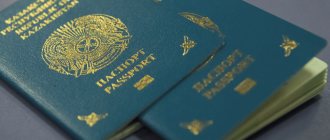Invoice and packing slips
Invoice is a document that the seller provides to the buyer. It contains all the information about the characteristics of the product (color, weight, numbers, etc.), its quantity, sales price, delivery conditions and information about the buyer and seller. Compiled in two languages. The invoice specifies the details of the contract to which it relates.
Do not confuse invoice and proforma invoice. An invoice is issued and confirms the fact of payment for the goods, and a proforma is a preliminary invoice. It does not confirm payment, but proves that the goods were shipped to the consumer. The issued invoice shows that the buyer has an obligation to pay for the goods. An invoice is similar in nature to our invoice or invoice for payment.
The accompanying document for the invoice is the packing list. It always accompanies the shipment of goods from the supplier to the buyer. There is no special sheet form; it is developed independently. The invoice and packing list reflect almost the same information, with the exception of the selling price - it is not on the sheet. Be sure to indicate in the document form:
- packing slip number and date;
- name and address of the buyer, consignee, seller and shipper;
- details of the international contract;
- a list of shipped goods with their characteristics;
- quantity of goods;
- package number, its type and dimensions;
- gross and net weight of the goods;
- total weight and volume of cargo.
For customs clearance, you need the originals of the invoice and packing list. The packing slip is attached to the surface of the package for quick reference.
Keep records of exports and imports using the simplified tax system in the Kontur.Accounting web service. Currency accounting and work instructions, taxes, automatic salary calculation and reporting in one service
Templates and samples of documents used when transporting goods by road
In accordance with Art. 38 UAT of the Russian Federation, circumstances that are the basis for the emergence of liability of carriers, charterers, shippers, consignees, charterers, passengers during the transportation of passengers and luggage, cargo or the provision of vehicles for the transportation of passengers and luggage, cargo, are certified by acts or marks in waybills, waybills sheets, accompanying statements provided for by this Federal Law. The procedure for drawing up acts is established by Decree of the Government of the Russian Federation of December 21, 2020 No. 2200 “On approval of the Rules for the transportation of goods by road and on amendments to paragraph 2.1.1 of the Road Traffic Rules of the Russian Federation.” The act is drawn up in the following cases:
- non-removal due to the fault of the carrier of the cargo provided for in the contract for the carriage of goods;
- failure to provide a vehicle and container for loading;
- loss or shortage of cargo, damage (damage) to cargo;
- failure to present cargo for transportation as provided for in the cargo transportation contract;
- refusal to use a vehicle provided on the basis of a charter agreement;
- delay in cargo delivery;
- delay (downtime) of vehicles provided for loading and unloading;
- delay (downtime) of containers owned by the carrier and provided for loading.
The act is drawn up by the interested party on the day the circumstances that are subject to the act are discovered. If it is impossible to draw up a report within the specified period, it will be drawn up within the next 24 hours. In the event that carriers, charterers, shippers, consignees and charterers evade drawing up an act, the relevant party has the right to draw up an act without the participation of the evading party, having previously notified it in writing about the drawing up of the act, unless another form of notification is provided for by the contract for the carriage of goods or the charter agreement. When generating electronic transportation documents, the act can be generated using another information system of electronic transportation documents. Notes on the preparation of the act in the waybill and the work order on paper are made by persons duly authorized by the shipper, or the carrier, or the consignee, or the charterer, or the charterer. When generating an electronic consignment note and an electronic work order, notes on the preparation of an act are placed in them by persons authorized by the participants in the information interaction to draw up acts in another information system of electronic transportation documents. The act on paper is drawn up in the number of copies corresponding to the number of persons participating in its preparation, but not less than 2 copies. Corrections in the drawn up act are not allowed. The bill of lading, work order and accompanying statement on paper must contain a note about the preparation of the act, containing a brief description of the circumstances that served as the basis for drawing up the act and the amount of the fine. When generating the specified documents in electronic form, they must be entered in another information system of electronic transportation documents with information about the preparation of the act, containing a brief description of the circumstances that served as the basis for drawing up the act, and the amount of the fine. There is no statutory form of the act, with the exception of some acts drawn up in the event of loss or shortage, damage (spoilage) of cargo. For example, an Act on establishing discrepancies in quantity and quality when accepting inventory items (form TORG-2)
The rules for transporting goods by road establish that the act contains:
- date and place of drawing up the act;
- surnames, names, patronymics (if any) and positions of persons participating in the preparation of the act;
- a brief description of the circumstances that served as the basis for drawing up the act;
- in case of loss or shortage of cargo, damage (deterioration) of cargo, their description and actual condition;
- information on documents drawn up regarding discrepancies during acceptance (if any);
- signatures of the parties involved in drawing up the act.
Payment documents
Payment under foreign contracts is confirmed by payment documents. This may be a payment order with a bank mark or a personal account statement. To clear customs, prepare certified copies.
In addition to paying for the cost of the cargo, you may be responsible for paying for insurance and transportation of goods. Please also provide payments for these costs to the customs authorities.
Payment of customs duties can be made by payment orders. For customs clearance, these payment slips are needed in originals with the bank's seal.
Registration of transportation documents
The YugTrans KMV / Trans-Caucasus group of companies strives to make the process of transporting goods by rail as comfortable as possible for its customers. Therefore, as an additional service, we offer the preparation of transportation documents .
The rules for preparing railway transportation documents are regulated by the Order of the Ministry of Railways of the Russian Federation “On approval of the Rules for filling out primary transportation documents for the transportation of goods by rail.” The set of transportation documents consists of:
sheet 1 - original invoice (issued by the carrier to the consignee);
sheet 2 - road manifest (drawn up in the required number of copies provided for by the Rules for the carriage of goods by rail - for the carrier and participants in the transportation process, including at least two additional copies for each infrastructure involved in the transportation of goods - one copy for the entrance railway station, located in this infrastructure, the second - for the output station from the infrastructure);
sheet 3 - the spine of the road manifest (remains with the carrier);
sheet 4 - receipt of cargo acceptance (remains with the shipper).
When sending each shipment, the shipper presents the dispatch station with a completed set of transportation documents.
The main legal document regulating the transportation of goods by rail is the consignment note. It must be filled out by the shipper for each shipment of cargo. The consignment note, together with the road manifest, is sent with the cargo to the destination station and, when the cargo is released at the destination station, is issued to the consignee. The shipper bears financial responsibility for the correctness and completeness of the information specified in the consignment note, as well as for the consequences arising from incorrect or unreliable information provided. In this case, the railway has the right to selectively check the accuracy of the information specified in the consignment note.
The road report is a financial settlement document. It also accompanies the cargo to the destination station, where the consignee signs for it, thereby certifying receipt of the cargo. Subsequently, the road statement, together with the accompanying statement, is sent to the settlement and commodity office, and from there to the road computing center. Road reports serve as the basis for calculating the volume of cargo transportation performed, determining the correctness and timeliness of completed transportation.
A receipt for acceptance of cargo for transportation is an important legal document confirming the acceptance of cargo for transportation by rail. It remains in the hands of the shipper.
The counterfoil of the road manifest serves as the basis for determining the freight charge for centralized calculations, as well as for calculating the volume of transportation by the station
Cargo transportation documents are A4 sheets with the same layout of columns and details, which allows you to fill them out as carbon copies. Erasures and blots are not allowed in transport shipping documents If new information must be added the cargo transportation documents
The carrier, consignor and consignee are responsible in the relevant part for the safety of transport shipping documents. For the loss of transportation documents for a carriage, administrative liability is provided, and the person through whose fault the loss of transportation documents occurred shall compensate the owner of the documents for all losses associated with their loss.
The safety of your cargo, timeliness and accuracy of its delivery depend on the correctness and completeness of the execution of transportation documents for the wagon. Therefore, we recommend entrusting the preparation of transportation documents to specialists of the transport company.
Transport documents
Cargo is transported by road, water, air and rail. Depending on this, the following main transport documents are distinguished.
- CMR consignment note - issued when transporting cargo by road, containing information about the sender and consignee, delivery point and characteristics of the cargo.
- The consignment note is used for road transport; it is used instead of CMR in the CIS countries and the Customs Union.
- Carnet TIR (Book of International Road Transport). TIR is an international cargo transportation system. The carnets are valid in countries that have signed a settlement agreement on the international transportation of goods using a TIR carnet. The TIR Carnet allows you to go through customs using a simplified procedure.
- Carnet ATA. Replaces the customs declaration, simplifies and speeds up customs clearance. This document is issued only for goods for exhibitions and fairs, professional equipment and some other categories of goods. The list is limited.
- A bill of lading is a document confirming the acceptance of cargo for sea transportation. It obliges the shipper to transport the goods to the specified port and hand over the goods to the holder of the bill of lading.
- Air waybill and railway waybill. Used for transportation by air and railway transport.
You will receive the original transport documents along with the cargo; provide them for customs clearance.
Documents Statistics on documents and execution of orders
GOVERNMENT OF THE RUSSIAN FEDERATION
RESOLUTION
dated May 27, 2021 No. 810
MOSCOW
On approval of the Rules for the provision of services for the transportation of passengers by rail, as well as cargo, luggage and cargo luggage for personal, family, household and other needs not related to business activities, and the recognition as invalid of certain acts and certain provisions of certain acts of the Government of the Russian Federation
The Government of the Russian Federation decides:
1. In accordance with Article 3 of the Federal Law “Charter of Railway Transport of the Russian Federation”, to approve the attached Rules for the provision of services for the transportation of passengers by rail, as well as cargo, luggage and cargo luggage for personal, family, household and other needs, not related to business activities.
2. In paragraph three of clause 2 of the Regulations on the specifics of the execution of a contract for the carriage of passengers by rail in the event of the threat and (or) occurrence of certain emergency situations, the introduction of a high alert regime or an emergency situation throughout the entire territory of the Russian Federation or in its part, approved by a decree of the Government of the Russian Federation dated June 20, 2021 No. 901 “On approval of the Regulations on the specifics of the execution of a contract for the carriage of passengers by rail in the event of the threat and (or) occurrence of certain emergency situations, the introduction of a high alert regime or an emergency situation throughout the entire territory of the Russian Federation or in its part” ( Collection of Legislation of the Russian Federation, 2021, No. 26, Art. 4127), the words “approved by Decree of the Government of the Russian Federation of March 2, 2005 No. 111 “On approval of the Rules for the provision of services for the transportation of passengers by rail, as well as cargo, luggage and cargo luggage for personal, family, household and other needs not related to business activities” should be replaced with the words “approved by the Government of the Russian Federation in accordance with Article 3 of the Federal Law “Charter of Railway Transport of the Russian Federation”.
3. To recognize as invalid:
Decree of the Government of the Russian Federation dated March 2, 2005 No. 111 “On approval of the Rules for the provision of services for the transportation of passengers by rail, as well as cargo, luggage and cargo luggage for personal, family, household and other needs not related to business activities” ( Collection of Legislation of the Russian Federation, 2005, No. 10, Article 851);
paragraph 30 of amendments to the acts of the Government of the Russian Federation on licensing of certain types of activities, approved by Decree of the Government of the Russian Federation of December 14, 2006 No. 767 “On amendments and invalidation of certain acts of the Government of the Russian Federation on licensing of certain types of activities” (Collected Legislation of the Russian Federation, 2006, No. 52, Art. 5587);
clause 8 of the changes that are made to the acts of the Government of the Russian Federation, approved by Decree of the Government of the Russian Federation dated May 14, 2013 No. 411 “On amendments to certain acts of the Government of the Russian Federation” (Collected Legislation of the Russian Federation, 2013, No. 20, Art. 2504 );
Decree of the Government of the Russian Federation dated June 17, 2015 No. 597 “On amendments to the Rules for the provision of services for the transportation of passengers by rail, as well as cargo, luggage and cargo luggage for personal, family, household and other needs not related to business activities "(Collected Legislation of the Russian Federation, 2015, No. 26, Art. 3892);
Decree of the Government of the Russian Federation of December 26, 2018 No. 1678 “On amendments to the Rules for the provision of services for the transportation of passengers by rail, as well as cargo, luggage and cargo luggage for personal, family, household and other needs not related to business activities "(Collected Legislation of the Russian Federation, 2018, No. 53, Art. 8707);
Decree of the Government of the Russian Federation of April 30, 2019 No. 545 “On amendments to the Rules for the provision of services for the transportation of passengers by rail, as well as cargo, luggage and cargo luggage for personal, family, household and other needs not related to business activities "(Collected Legislation of the Russian Federation, 2019, No. 19, Art. 2302);
Decree of the Government of the Russian Federation dated August 27, 2020 No. 1294 “On amendments to the Rules for the provision of services for the transportation of passengers by rail, as well as cargo, luggage and cargo luggage for personal, family, household and other needs not related to business activities "(Collected Legislation of the Russian Federation, 2020, No. 36, Art. 5614).
4. This resolution comes into force on September 1, 2021 and is valid until September 1, 2027.
Chairman of the Government of the Russian Federation M. Mishustin
APPROVED by Decree of the Government of the Russian Federation dated May 27, 2021 No. 810
RULES for the provision of services for the transportation of passengers by rail, as well as cargo, luggage and cargo luggage for personal, family, household and other needs not related to business activities
I. General provisions
1. These Rules, developed in accordance with the Federal Law “Charter of Railway Transport of the Russian Federation” (hereinafter referred to as the Charter of Railway Transport), regulate relations arising between carriers and individuals - passengers, shippers (senders) and consignees (recipients) (hereinafter - users) when providing services for the transportation of passengers by rail, as well as cargo, luggage and cargo luggage for personal, family, household and other needs not related to business activities (hereinafter referred to as services).
2. When providing services, users are provided with the same terms of service and payment for services provided. In accordance with the legislation of the Russian Federation and the legislation of the constituent entities of the Russian Federation, certain categories of service users may be provided with other terms of payment for services provided.
3. Services for the transportation of passengers are provided by the carrier in accordance with the contract for the carriage of passengers, according to which the carrier is obliged to transport the passenger to the destination point by providing him with a seat on the train (with the exception of commuter trains, which do not provide for the provision of a separate seat to the passenger), and in the event baggage check-in by the passenger - deliver the baggage to the destination and hand it over to the person authorized to receive the baggage.
Services for the transportation of cargo, cargo luggage for personal, family, household and other needs not related to business activities are provided by the carrier in accordance with the contract for the carriage of cargo or cargo luggage, according to which the carrier is obliged to deliver the cargo, cargo luggage entrusted to him by the consignor (sender) to the point destination and issue it to the person authorized to receive the cargo or cargo luggage.
The passenger is obliged to pay for his travel and baggage transportation (if it is checked in) according to the established tariffs, and the shipper (sender) is required to pay for the transportation of cargo and cargo luggage.
Tariffs, payment rates and fees for services, as well as the procedure for their introduction (change) are established in accordance with Article 8 of the Federal Law “On Railway Transport in the Russian Federation”.
4. The relationship between the carrier and users in the provision of services not provided for by these Rules is regulated by the Civil Code of the Russian Federation, the Charter of Railway Transport, as well as the rules for the transportation of passengers, baggage, and cargo luggage by rail approved by the Ministry of Transport of the Russian Federation (hereinafter referred to as the rules for the transportation of passengers, baggage, cargo luggage) and the rules for the transportation of goods by rail (hereinafter referred to as the rules for the transportation of goods).
II. Information about the services provided
5. The Carrier ensures the timely provision of the following reliable information to service users (in a visual and accessible form):
a) a list of works and services, their cost;
b) the name and location (legal address) of the carrier, the location of the carrier’s division authorized to accept and consider claims brought against the carrier;
c) information about the carrier’s license to transport passengers, baggage, cargo and (or) cargo luggage (number, validity period, name of the issuing authority);
d) the cost of travel for passengers and transportation of hand luggage in excess of the established norm, as well as transportation of goods, luggage, cargo luggage;
e) time of departure and arrival of trains;
f) terms of sale of travel documents (tickets);
g) a list of things (items) prohibited for transportation and storage as hand luggage, baggage, cargo luggage;
h) opening hours of ticket and baggage offices, commodity offices and hand luggage storage rooms;
i) the location of station premises, public areas of railway stations intended for servicing passengers, handling luggage, cargo luggage, and places for weighing hand luggage;
j) time of arrival at the destination railway station of baggage traveling without reloading along the route;
k) the procedure for providing seats in passenger rest rooms and mother and child rooms;
l) a list of categories of citizens who are granted the right to free travel or the right to pay for travel at a discount in accordance with the legislation of the Russian Federation and the legislation of the constituent entities of the Russian Federation;
m) information about the contract (contracts) of compulsory and (or) voluntary insurance (number, date of conclusion, validity period) and the insurer (insurers) (name, location, postal address, telephone number);
o) a list of services included in the cost of travel in luxury cars;
o) information about the possibility of purchasing a travel document (ticket) for a long-distance train at a tariff that provides for the condition of receiving back the cost of travel when returning an unused travel document (ticket) in accordance with the provisions of part three of Article 83 of the Railway Transport Charter or at a tariff that does not provide such a condition;
p) other information about the services provided.
6. The information specified in paragraph 5 of these Rules is provided free of charge at railway stations, railway stations, on trains and other places where users are served in Russian, and also, at the carrier’s discretion, additionally in the state languages of the constituent entities of the Russian Federation and other languages of the peoples of the Russian Federation taking into account the interests of the population, and the information specified in subparagraph “p” of paragraph 5 of these Rules is also provided on the official website of the carrier or its authorized person on the Internet information and telecommunications network (hereinafter referred to as the “Internet”).
7. The carrier is obliged, at the request of service users, to provide (at railway stations and railway stations) these Rules, as well as the rules for the carriage of passengers, baggage, cargo luggage and the rules for the carriage of goods for review.
8. Bringing to the attention of passengers the schedule of passenger, including commuter, and mail and luggage trains is provided by the carrier using wall-mounted information media, special information stands and reference books. Changes in the passenger train schedule are announced via loudspeakers at railway stations and railway terminals.
9. Information on changes in regulated tariffs, payment rates and fees for services is published by the Ministry of Transport of the Russian Federation in the printed publication:
a) in relation to the carriage of passengers, baggage and cargo luggage - no later than 5 working days before the entry into force of changes in regulated tariffs, rates of payment and fees;
b) in relation to the transportation of goods - no later than 10 working days before the entry into force of changes in regulated tariffs, rates of payment and fees.
III. The procedure for providing services for the transportation of passengers and storage of hand luggage
10. To travel on a long-distance train, a passenger must have a travel document (ticket), and the carrier or another person authorized by the carrier must issue a travel document (ticket) if there is free space on the train to the destination railway station indicated by the passenger.
11. When traveling on a long-distance train and a commuter train, a passenger has the rights provided for in Article 83 of the Railway Transport Charter.
12. Passenger travel on a commuter train is carried out on the basis of a ticket for a single trip there or round trip or a subscription ticket of the established form.
13. Carriage of children under 5 years of age by a passenger on a suitable train is free of charge.
There are no refunds for unused tickets for a single trip, except for the passenger receiving the full fare in the event of an unscheduled interruption in commuter train service for more than one hour.
Refunds for unused subscription tickets are made in the manner and in cases provided for by the rules for the transportation of passengers, baggage, and cargo luggage.
14. The carrier has the right to refuse to sell a travel document (ticket) to a passenger:
a) if there are no free seats on the train (except for commuter trains, in which seats are not provided);
b) in the absence of a train stop for boarding and disembarking a passenger at the destination indicated by the passenger.
15. The carrier has the right to refuse to sell a travel document (ticket) to a passenger with payment of a discounted fare or to issue a free travel document (ticket) in the absence or presentation of an improperly executed document confirming the right to pay a discounted fare or free travel.
16. Issuance of a travel document (ticket) for a long-distance train is carried out on the basis of information about the passenger’s identity document, and for persons who have the right to pay the fare at a discount or free travel, in addition, on the basis of documents confirming this right.
The list of identification documents on the basis of which a travel document (ticket) for a long-distance train is issued is determined by the rules for the transportation of passengers, luggage, and cargo luggage.
When issuing a travel document (ticket) for a long-distance train, indicating the last name, first name, patronymic (if available), date of birth, citizenship, gender of the passenger and identification document number is mandatory.
When issuing a travel document (ticket) for a long-distance train using a mobile application and (or) the official website of the owner of public railway transport infrastructure (hereinafter referred to as the owner of the infrastructure) on the Internet, a mobile application and (or) the official website of the carrier on the Internet "Internet" for identification and authentication of passengers, the federal state information system "Unified System of Identification and Authentication in the Infrastructure Providing Information and Technological Interaction of Information Systems Used to Provide State and Municipal Services in Electronic Form" and other methods of identification and authentication determined by the owner are used infrastructure or carrier.
The issuance of a travel document (ticket) for a long-distance train for a disabled passenger, as well as the provision of services to him without charging an additional fee in accordance with the legislation of the Russian Federation, are carried out on the basis of information about the passenger’s identity document, as well as on the basis of a document confirming disability , including confirming the need to use a wheelchair, or information provided electronically using the insurance number of the passenger’s individual personal account through a unified system of interdepartmental electronic interaction by the operator of the federal state information system “Federal Register of Disabled Persons”, about the fact of disability determination, disability group (disabled child category), degree of limitation of the ability to move independently, including recommendations for the provision of a wheelchair.
A travel document (ticket) for a long-distance train for children under one month of age can be issued on the basis of information about a medical birth certificate issued by a medical organization or an individual entrepreneur engaged in medical activities in the prescribed manner. In this case, the travel document (ticket) for a long-distance train must indicate the surname of the child (parent or other person) indicated on the medical birth certificate, as well as the series and number of such medical birth certificate.
When receiving a travel document (ticket), the passenger must check the correctness of the last name, identification document number and other personal data, travel details (departure date, train number, railway stations of departure and destination) and other information indicated in it.
17. Issuance of a travel document (ticket) for a commuter train to a person entitled to pay the fare at a discount or free travel is carried out upon presentation of an identification document and documents confirming this right, or on the basis of information about the citizens who are granted social service in the form of free suburban rail travel, provided electronically using the insurance number of the passenger’s individual personal account by operators of information systems containing information about citizens who are provided with the specified social service, its validity period, as well as information about the document confirming the specified right.
When issuing a travel document (ticket) for a commuter train using a mobile application or the official website of the owner of the infrastructure, a mobile application or the official website of the carrier on the Internet, the federal state information system “Unified System of Identification and Authentication in Infrastructure” is used to identify and authenticate the passenger , providing information and technological interaction of information systems used to provide state and municipal services in electronic form” and other methods of identification and authentication determined by the owner of the infrastructure or the carrier.
18. When a passenger purchases a travel document (ticket) using a mobile application or the official website of the owner of the infrastructure, a mobile application or the official website of the carrier on the Internet, the owner of the infrastructure or the carrier provides the opportunity to send such a travel document (ticket) to the federal state information system " Unified portal of state and municipal services (functions).”
19. A travel document (ticket) is issued for a child under 5 years of age traveling with an adult on a long-distance train, if he does not occupy a separate seat.
20. Certain categories of citizens have, in accordance with the law
Documents from the carrier, forwarder and agent
This group includes contracts for transportation, provision of forwarding or agency services, as well as invoices issued for the services of these persons and cargo insurance. Special requirements apply to the invoice for the provision of transportation services. The invoice amount should be divided into two groups:
- delivery costs from the place of departure to the customs point;
- delivery costs from the customs point to the place of delivery.
In the contract for the provision of transport services, indicate the place of departure, the place of crossing the customs border and the place of delivery. For customs clearance, copies of contracts and invoices are needed.
Additional documents
Be prepared that in some cases customs authorities may request additional documents from you. This is done to determine the customs value of the goods. Mostly they ask for:
- export declaration of the sender (when importing goods);
- commercial offer of the seller (for import);
- manufacturer's cost estimate to confirm costs.
Keep records of exports and imports using the simplified tax system in the Kontur.Accounting web service. Currency accounting and work instructions, taxes, automatic salary calculation and reporting in one service
Documents for registering a foreign trade participant at customs
In addition to customs clearance of goods, you yourself must register as a participant in foreign trade activities. To do this, provide a list of documents:
- the charter in the latest edition;
- a copy of the constituent agreement;
- if the size of the authorized capital has changed, then the minutes of the meeting of founders on the change in its size;
- copy of the State Registration Certificate;
- extract from the Unified State Register of Legal Entities;
- tax registration certificate;
- certificate from the bank about opening accounts;
- certificate of registration in the USRPO and a letter from Rosstat;
- information about the manager and chief accountant (copies of passports with the organization’s seal and orders of appointment);
- a lease agreement for premises at a legal address or a certificate of ownership of it.
Now you know what documents are needed to import and export goods. We offer accounting of these operations using the simplified tax system in the cloud service Kontur.Accounting. Keep separate records of income from domestic and foreign trade, calculate VAT and customs duties. The first 14 days of using the service are free.









